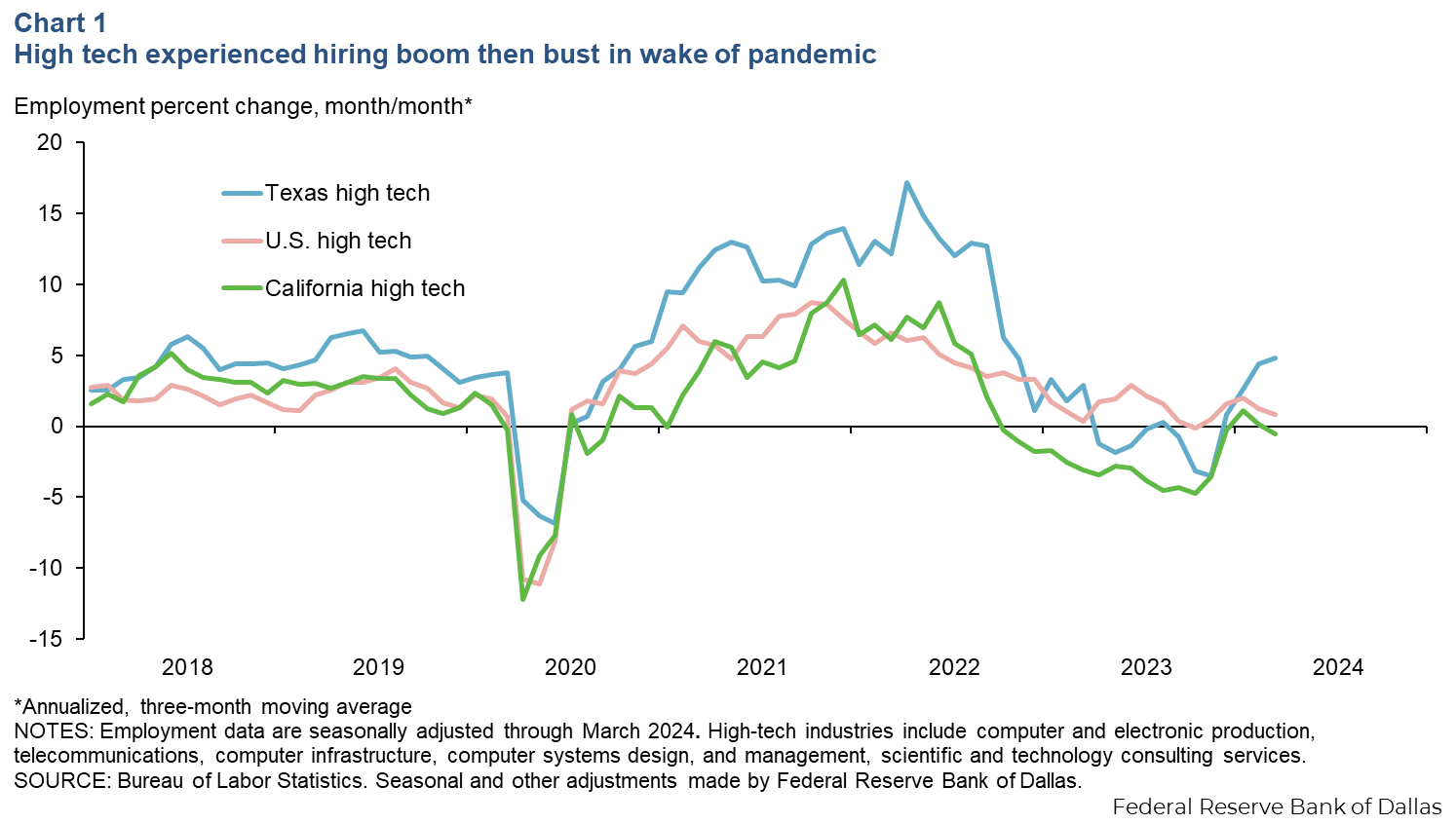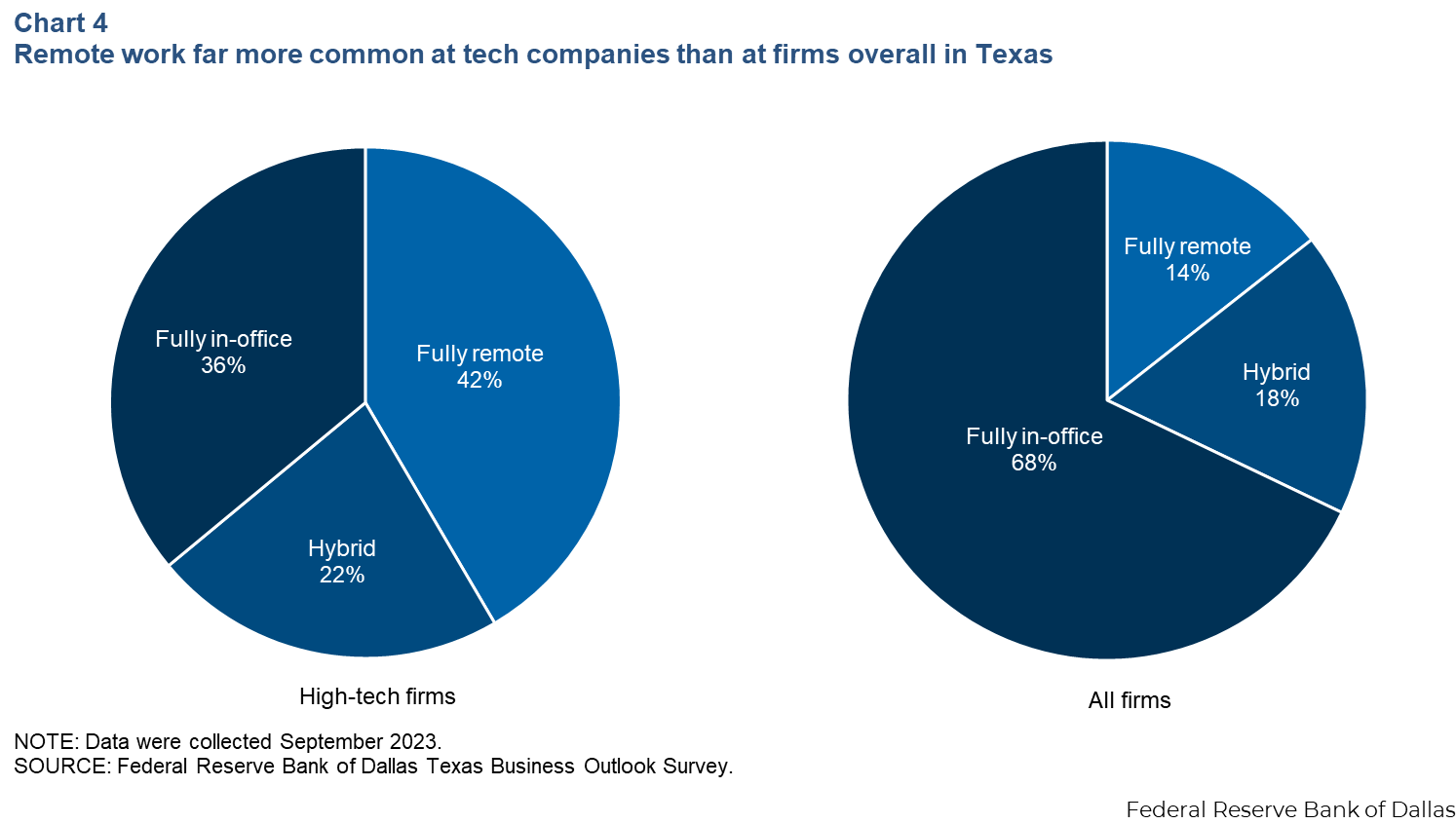AI Training Mandates: Navigating Legal Waters in Dentistry
AI Training Mandates: Navigating Legal Waters in Dentistry
The integration of artificial intelligence (AI) into dental practices is more than a technological trend; it represents a seismic shift in the industry. This transformation is reshaping skill sets and prompting a thorough examination of legal and ethical implications. As AI systems increasingly perform tasks traditionally handled by human intelligence, the dental sector is grappling with new challenges and opportunities.Since its inception in the 1950s, AI has advanced rapidly, leading to its widespread adoption in healthcare and dentistry. This evolution has been driven by significant strides in computing power and data accessibility, ushering in an era where AI technologies are deeply embedded in dental practice management, patient care optimization, and administrative efficiency.
Legal Frameworks Across the Globe
In Canada, the dual framework of federal and provincial legislation governs employment law. While dental practices primarily fall under provincial jurisdiction, existing laws like the Personal Information Protection and Electronic Documents Act (PIPEDA) are crucial. As AI systems process sensitive patient data, the proposed Artificial Intelligence and Data Act (AIDA) signifies a forthcoming regulatory framework to oversee high-impact AI technologies.In the United States, the employment law landscape is shaped by federal statutes and state-specific regulations. The Equal Employment Opportunity Commission (EEOC) has proactively scrutinized AI’s role in hiring, ensuring applications align with federal civil rights laws, thus mitigating risks of discriminatory practices.
Meanwhile, the European Union has pioneered AI regulation within employment law, focusing on data protection and ethical AI deployment. The General Data Protection Regulation (GDPR) and the proposed AI Act impose stringent rules on AI systems, safeguarding privacy and ensuring fairness in employment contexts.
Employment Implications and Legal Challenges
Implementing AI training mandates in dental offices introduces several implications. Skill gaps among staff necessitate tailored training approaches, potentially impacting daily operations. Traditional roles may evolve to include AI-related responsibilities, altering job descriptions and expectations. Moreover, privacy concerns arise as AI systems handle sensitive patient data.Mandating AI training could also lead to constructive dismissal claims if it significantly alters employment terms. Legal precedents in Canada, such as Farber v. Royal Trust Co., highlight the potential for claims arising from substantial changes in job duties or skill requirements.
Discrimination concerns, particularly age-related disparities, are also significant. Mandatory AI training may disproportionately affect older employees, potentially leading to age discrimination claims. Dental offices must align AI training initiatives with human rights legislation, ensuring accommodations for employees with disabilities.
Strategies for Mitigation and Best Practices
To mitigate legal risks, transparent communication regarding AI training requirements is essential. Dental offices should clearly articulate the reasons for AI integration and document employee consent to participate in training programs. Consulting with legal experts and conducting audits of AI training programs can further ensure compliance with evolving legal frameworks.Offering voluntary AI training programs with incentives and implementing phased introductions to AI technologies can enhance employee motivation and engagement. By customizing training programs to individual needs, dental offices can foster a supportive learning environment.
As AI continues to transform the dental industry, navigating these advancements demands careful attention to legal and ethical principles. By embracing a thoughtful and inclusive approach to AI integration, dental offices can harness AI’s transformative potential while mitigating legal risks and cultivating a positive work environment.
For more insights, refer to the original article on the Oral Health Group.
More Articles
Getting licensed or staying ahead in your career can be a journey—but it doesn’t have to be overwhelming. Grab your favorite coffee or tea, take a moment to relax, and browse through our articles. Whether you’re just starting out or renewing your expertise, we’ve got tips, insights, and advice to keep you moving forward. Here’s to your success—one sip and one step at a time!
Strategic Foresight in Commercial Real Estate: Embracing Change by 2025
Macroeconomic Influence
The global economic outlook plays a crucial role in shaping the commercial real estate sector. As noted in the United States Economic Forecast: Q2 2024, the U.S. economy is poised for changes that will inevitably impact real estate dynamics. Similarly, the Eurozone economic outlook and India’s economic forecast highlight regional variations that could influence investment strategies.
Interest Rate Adjustments
Monetary policy changes by leading global banks are reshaping lending practices. The Bank of England’s recent interest rate cut and the Federal Reserve’s openness to a possible rate cut, as reported by The New York Times, signal a shift that could ease borrowing costs and stimulate investment in real estate.
Technological Advancements and Sustainability
The demand for sustainable and green real estate solutions is on the rise. Organizations are increasingly focusing on eco-friendly practices and technologies to meet the expectations of environmentally conscious consumers and investors. This trend is not only beneficial for the planet but also serves as a competitive advantage in the marketplace.
Strategic Positioning for Future Growth
As the Deloitte Commercial Real Estate Outlook suggests, this is a golden opportunity for organizations to strategically position themselves. By leveraging the insights from the economic forecasts and adapting to the changing market dynamics, companies can secure a robust footing in the future landscape.

In conclusion, the 2025 commercial real estate outlook underscores the importance of strategic foresight and adaptability. As the sector stands at a crossroads, organizations that embrace these changes and invest in sustainable, technologically advanced solutions are likely to thrive in the coming years.
The Future of the Housing Market: A Decade of Change
The Future of the Housing Market: A Decade of Change
The housing market has been on a rollercoaster ride in recent years, with prices skyrocketing due to a combination of pandemic-induced shifts and historically low interest rates. As we look forward to the next decade, prospective homebuyers are left pondering: Will prices continue their upward trajectory? How will affordability be affected?According to a recent article from Norada Real Estate Investments, the real estate market is poised for significant transformation over the next ten years. This transformation will be driven by several dynamic trends.
Key Trends Shaping the Market
- Changing Demographics: As Millennials and Gen Z enter the housing market, their preferences and buying power will significantly influence demand.
- Interest Rate Fluctuations: The cost of borrowing will continue to play a crucial role in shaping affordability and buyer behavior.
- Technological Advancements: From virtual tours to AI-driven insights, technology is set to redefine the industry, making processes more efficient and personalized.
Moreover, environmental considerations are taking center stage, with sustainable building practices and resilient home designs becoming more prevalent. Government policies, innovative housing models, and a shift towards inclusive real estate practices aim to address the ongoing affordability challenge.
Predictions for 2030
By 2030, home values in certain cities are expected to see significant increases. For instance, the average price of homes in San Francisco and San Jose could surpass $2 million, driven by continued growth patterns. A study by RenoFi predicts that the average price of a single-family home in the U.S. could reach $382,000, although this varies significantly by location.
For those looking to navigate this complex future, early savings and strategic investment are key. Prospective homeowners are encouraged to invest in options like index funds and robo-advisors to counter inflation. Keeping a close eye on mortgage rate trends will also be essential as they prepare for potential opportunities to lock in favorable rates.
Conclusion
While the path to homeownership may seem daunting, strategic financial planning and early preparation can help individuals realize their dream of owning a home amidst evolving market conditions.
Commercial Real Estate Faces Uncertain Terrain
Commercial Real Estate Faces Uncertain Terrain
As the commercial real estate industry peers into the future, a landscape fraught with challenges and opportunities comes into focus. The complexities of economic shifts, policy changes, and emerging trends have created a dynamic environment for stakeholders. This outlook, as detailed in Deloitte’s 2025 Commercial Real Estate Outlook, highlights the pivotal changes shaping the industry.Economic Shifts and Policy Changes
The United States Economic Forecast: Q2 2024 by Robyn Gibbard underscores the economic fluctuations impacting real estate markets. Similarly, the Eurozone’s economic outlook, analyzed by Dr. Alexander Boersch and Dr. Pauliina Sandqvist, reveals how policy adjustments, like the ECB’s rate cuts, are being received by the industry.In India, Dr. Rumki Majumdar’s insights provide a regional perspective, while Ira Kalish’s global economic outlook offers a broader view of the challenges and opportunities on the horizon. These reports, collectively, suggest that the commercial real estate sector must adapt to a rapidly changing economic landscape.
Interest Rates and Market Dynamics
Interest rate adjustments are a significant factor influencing the real estate market. The Bank of England’s decision to cut rates for the first time since 2020, as reported by Eshe Nelson, reflects a strategic move to stimulate economic growth. Similarly, the Federal Reserve’s openness to a potential rate cut, as mentioned by Jeanna Smialek, indicates a cautious approach to managing inflation.These monetary policy shifts are crucial for real estate investors, as they directly affect borrowing costs and investment returns. Stakeholders must stay informed and agile to navigate these changes effectively.
Emerging Trends and Opportunities
The commercial real estate industry is also witnessing the emergence of new trends that present both challenges and opportunities. The rise of remote work, the increasing importance of sustainable building practices, and the integration of technology are reshaping the sector. Adapting to these trends will be essential for long-term success.As the industry moves towards 2025, the ability to innovate and embrace change will be key. Stakeholders must be proactive in identifying opportunities amidst uncertainties. The insights provided by Deloitte’s comprehensive outlook serve as a valuable guide for navigating this evolving landscape.
Los Angeles Revolutionizes Affordable Housing Policy
In a city where the notion of a “100% affordable project” without public funding once seemed a contradiction, Los Angeles is witnessing an unprecedented transformation. Thanks to an executive order signed by Mayor Karen Bass, the city is now approving these projects by the hundreds, reshaping the landscape of affordable housing.
The executive order, enacted in December 2022, has led to plans for more than 13,770 affordable units, a figure nearly matching the combined total of the previous three years. This policy has not only accelerated the approval process but has also opened the doors for private developers, traditionally focused on luxury housing, to venture into affordable housing.
Developers like Andrew Slocum and Terry Harris are now spearheading projects like the proposed seven-story building on West Court Street. These projects, once deemed financially unfeasible without subsidies, are now viable due to the streamlined processes and incentives provided by the executive order.
However, this rapid development has sparked political debates and legal challenges. Two lawsuits and ongoing discussions in the city council highlight the contentious nature of transforming a mayoral decree into a permanent policy. The executive order, while expediting affordable housing, has also raised questions about its long-term sustainability and impact on existing neighborhoods.
A Shift in Housing Policy
The shift in policy has allowed developers to bypass traditional hurdles such as environmental impact studies and city council hearings. This expedited process, coupled with the absence of prevailing wage requirements, has made affordable housing projects financially attractive to profit-driven developers.
Yet, the affordability of these projects remains a topic of debate. While they cater to individuals earning under $100,000, the rent for a studio can still reach $1,800, a far cry from the lower rates offered by subsidized housing projects.
The Road Ahead
As Los Angeles navigates this new terrain, the city council is considering a permanent ordinance to solidify the executive order’s provisions. The outcome of this legislative process will determine the future of affordable housing in Los Angeles and whether the city can maintain this momentum without sacrificing community integrity.
For more insights on this evolving story, refer to the original article from CalMatters.
Philadelphia’s Center City Office Market: A Summer of Transformation
Philadelphia’s Center City Office Market: A Summer of Transformation
This summer marked a significant shift in Philadelphia’s Center City office market, as the long-standing effects of the COVID-19 pandemic and the rise of remote work began to thaw. Between June and August, five major office buildings changed hands, albeit for prices significantly lower than their previous valuations. This shift reflects the broader challenges facing commercial real estate in the era of hybrid work.
Among the notable transactions, two buildings, 399 and 1760 Market Street, will remain as office spaces but with drastically reduced rents. Meanwhile, 400 Market Street is set for conversion into apartments, and Three Parkway will be transformed into a mixed-use building, half residential and half office. Additionally, the iconic Bourse building on Independence Mall will see parts of it converted into hotel space.
The Wanamaker building, one of the white elephants of Center City real estate, saw its loan sold at a $45 million loss to New York City’s TF Cornerstone Inc., which already owns the Macy’s space on the lower floors. This sale is a precursor to potential full ownership and a reimagining of the building’s future.
A Complex Picture
The recent flurry of activity is not without its downsides. Building owners and investors, including public pension funds, have incurred substantial losses. The Pennsylvania school (PSERS), Pennsylvania state workers (SERS), and New Jersey state pension funds reported a combined loss of $1.3 billion from real estate investments, even as they paid over $180 million in fees to Wall Street real estate firms. For these funds, real estate has been their worst-performing asset class.
Commercial real estate owners are challenging property tax assessments, arguing that their buildings are worth less than before, which poses a threat to municipal finances. Office vacancy rates in the second quarter of this year stood at over 19%, according to Jones Lang LaSalle (JLL). The year 2025 is expected to see a peak in lease expirations, with 1.4 million square feet of space up for renewal. The Center City District reports that retail occupancy remains below 2019 levels.
Despite these challenges, there is a sense of cautious optimism. An anticipated interest rate cut could ease pressure on new projects and building owners with floating rate loans. “I don’t know if cautious optimism is the right word, but there is a feeling that there is a way to work our way through this,” said Tom Weitzel, JLL’s managing director in Philadelphia. “This is not good, this is not easy, but there’s a light at the end of the tunnel.”
Office-to-Residential Conversions
While the initial enthusiasm for converting vacant office spaces into housing waned as the complexities became apparent, this summer saw two additional conversions. Lubert-Adler Real Estate Funds and Keystone Real Estate Group purchased the Bourse building and 400 Market Street. The Bourse will be partly converted into hotel and event space, while 400 Market Street will become 176 apartment units.
These transactions represent a growing trend of office-to-residential conversions in Center City, with seven such projects announced, totaling 1.5 million square feet of space and adding over 1,350 apartment units to the area. “It’s way more [conversions] than we predicted,” said Clint Randall, vice president of economic development with Center City District. “It’s not a silver bullet, but thanks to conversions, we help the supply side of the equation moderate.”
Cheaper Office Sales, Cheaper Rents
Residential conversion isn’t the only outcome for post-COVID office building sales. The east and west sides of Market Street saw sales of midsize buildings that will preserve office uses while reducing rents to attract startups, nonprofits, and small businesses. At 399 Market Street, residential developer Ori Feibush purchased the old Colonial Penn Life Insurance Co. building for $14 million, a markdown of one-third from its previous valuation.
Feibush has been successful in cutting office suites into smaller chunks and reducing rents to $23-$25 a square foot, below the regional average of $29.95. A similar strategy is underway at 1760 Market Street, which changed hands for two-thirds less than its previous sale price in 2018. “Leasing activity is robust,” said James L. Paterno, founder of Stockton Real Estate Advisors, which manages 1760 Market Street.
Looking Ahead
While the uptick in transactions may not necessarily indicate a healthier market, it does show a willingness among building owners and investors to accept substantial losses to move forward. “The uptick in transaction volume doesn’t speak to a healthier market necessarily, so much as it does just more desire to unload properties or to shift burdens elsewhere,” said Ashley DeLuca, co-leader of the distressed property team at Ballard Spahr.
As the market continues to evolve, these transactions could pave the way for a new chapter in Center City’s office landscape. “This happens every 20 years or so,” said Glenn Blumenfeld, principal with Tactix Real Estate Advisors. “This is when people get rich in real estate. It’s easier when you have big distressed situations.”
The Best Investor Opportunities? Look South
The Best Investor Opportunities? Look South
In the ever-evolving landscape of real estate investment, the southern United States has emerged as a beacon of opportunity. A recent report from RealEstateNews.com highlights Florida, North Carolina, and Texas as the leading markets for investors seeking growth and stability. Key Findings from the Report- Florida remains a top market due to its annual price growth, personal income increases, and population expansion.
- North Carolina and Texas also present ripe opportunities for investors, with major cities showing promising metrics.
- Despite high potential, some markets like Texas and Arizona have experienced significant declines in home prices.

Challenges on the Horizon
While the southern markets boast enticing metrics, they are not without risks. Notably, Austin and Dallas have witnessed steep drops in home prices since their peak. Additionally, inventory continues to pile up in Phoenix, and Florida is shifting towards a buyer’s market. Investors must also navigate increasing property taxes and rising home and flood insurance costs, especially in Florida, where extreme weather events are becoming more frequent. According to the National Association of Realtors, existing home sales fell by 2.5% between July and August, with the South experiencing a more pronounced downturn of 6% year-over-year. In conclusion, while the South offers abundant opportunities for real estate investors, careful consideration and strategic planning are essential to navigate the complexities of these dynamic markets.Innovative Solutions to Tackle California’s Housing Crisis
1. Industrialized Construction Methods
Rising construction costs, as noted in the California Construction Cost Index, have surged by 36.5% from January 2021 to January 2024. To combat this, industrialized methods such as modular construction, panelized construction, and 3D printing offer promising alternatives. These methods promise reduced costs, faster build times, and environmental benefits, which could be pivotal in making projects financially viable.2. Alternative Homeownership Models
Traditional homeownership has not served everyone equally, with significant disparities in ownership rates among different racial groups. Community land trusts, housing cooperatives, and Tenancy in Commons provide alternative pathways to ownership, fostering shared wealth and stewardship. These models challenge conventional norms, offering more inclusive and affordable options for communities historically excluded from homeownership.3. Cross-Sector Housing Solutions
Addressing the housing crisis requires collaboration across sectors. The Partnership for the Bay’s Future is a prime example, leveraging diverse perspectives to increase housing affordability and build vibrant communities. By combining innovative financing and cross-sector collaboration, this initiative has protected over 73,000 tenants and financed homes for 11,000 people.4. Learning from COVID-19 Housing Solutions
The COVID-19 pandemic prompted unprecedented government action, including eviction moratoriums and rental relief programs. These measures, such as California’s $5.2 billion rental relief program, prevented evictions and supported over 370,000 households. Local efforts, like those in Santa Clara County, further demonstrated the effectiveness of cash aid programs in preventing homelessness.5. Transforming Surplus Lands
Converting surplus and underutilized lands into affordable housing is a strategic solution to the housing shortage. Recent legislation in California prioritizes building on government-owned land and streamlines development processes for religious organizations and nonprofit colleges. This approach unlocks thousands of acres, offering potential for millions of new homes.6. Infill Housing and Densification
Infill housing, including accessory dwelling units (ADUs) and lot splitting, maximizes urban spaces. California’s strong ADU laws and legislation like Senate Bill 35 facilitate expedited housing approvals, making infill housing a viable and eco-friendly solution.7. Preserving Existing Lower-Cost Housing
Preserving naturally occurring affordable housing is crucial to maintaining affordable options. Initiatives like the Los Angeles Local Rental Owners Collaborative support local landlords and prevent displacement, ensuring these homes remain accessible to low-income households.As California navigates its housing challenges, these solutions offer a roadmap for progress. By embracing innovative and inclusive strategies, the state can move towards a future where everyone has a safe, stable, and affordable place to call home.
Housing Markets in Key U.S. Regions Face Elevated Risk

Housing Markets in Key U.S. Regions Face Elevated Risk
In a recent analysis by ATTOM, the housing markets of California, New Jersey, and Illinois have been spotlighted for their susceptibility to downturns. Despite a generally robust national market, these states exhibit significant vulnerabilities, particularly in the metropolitan areas of New York City and Chicago.The Q2 2024 Special Housing Risk Report by ATTOM highlights the intricate landscape of the U.S. housing market, focusing on home affordability, underwater mortgages, foreclosures, and unemployment. This analysis reveals that nearly half of the most at-risk counties are concentrated in the aforementioned states.
Regional Disparities in Housing Market Risks
While the housing market continues to expand, certain regions are showing signs of potential instability. Rob Barber, CEO of ATTOM, notes, “These observations point to uneven levels of risk without signifying imminent red flags or downturns.”The study evaluated 589 counties, uncovering that almost 50% of the markets most susceptible to decline are in California, New Jersey, and Illinois. These areas have been identified as having significant clusters of risk, particularly in New York City, Chicago, and inland California. Conversely, regions such as Virginia, Wisconsin, and Tennessee are considered less vulnerable.
Key Indicators and Findings
- Foreclosure risks are significant, with one in every 1,000 properties facing foreclosure in 39 of the most vulnerable counties.
- High unemployment rates are notably prevalent in central California.
- Counties like Tangipahoa Parish, LA, and Peoria County, IL, have some of the highest rates of underwater mortgages.
- Charlotte County, FL, leads in foreclosure actions.
In contrast, many parts of the South and Midwest demonstrate resilience, with lower housing expenses relative to wages and significantly reduced foreclosure and unemployment rates.
For more detailed insights, visit ATTOM’s Data Solutions.
The Metaverse: A New Frontier in Real Estate
The Metaverse: A New Frontier in Real Estate
As the virtual world continues to expand, the metaverse has emerged as a transformative force in the real estate industry. This immersive 3D iteration of the internet offers shared virtual environments where avatars can engage in a myriad of activities, including socializing, gaming, and shopping. Now, the metaverse is carving out a niche in real estate, raising the question: are there buyers for these virtual properties?
According to an analysis by ExpertMarketResearch.com, the metaverse real estate market was valued at $1.69 billion in 2023. With a projected compound annual growth rate of 48.6%, it is expected to reach a staggering $59.38 billion by 2032. This growth has been fueled by shifts in cryptocurrency interests, which have significantly impacted virtual land prices.
Despite the allure of the metaverse, it’s not without its challenges. The market is subject to the cyclical nature of cryptocurrencies, with prices fluctuating wildly. For instance, Snoop Dogg’s virtual estate saw a dramatic depreciation, losing 94% of its value by mid-2023. The average cost of a parcel of virtual land plummeted from about $18,000 in January 2022 to less than $2,000 by mid-2023.
However, the foundation of many blockchain-based metaverse worlds on Ethereum provides some stability, as the value of ether is relatively stable compared to other cryptocurrencies. This stability is crucial as the metaverse has the potential to reshape the real estate industry by introducing blockchain technologies. These technologies can streamline processes like asset verification and transaction settlements, offering a more transparent and secure system.
Bridging the Virtual and Real Worlds
The metaverse’s impact isn’t confined to the digital realm. It is beginning to overlap with the real world, as demonstrated by initiatives like ONE Sotheby’s International Realty’s MetaReal properties. This approach links physical estates to their virtual counterparts, offering buyers a unique blend of real and virtual real estate.
The emergence of virtual real estate brokerage further underscores the metaverse’s potential. While the space remains largely unregulated compared to traditional real estate, brokers can help buyers and sellers navigate these virtual worlds, negotiate favorable prices, and provide valuable advice on asset utilization.
The future of metaverse real estate hinges on technological advancements and societal adaptation to virtual living. As noted in the original article from Chicago Agent Magazine, early adopters may find immense value in this innovative domain, or they may face significant risks. Nevertheless, exploring metaverse real estate could offer a unique opportunity to diversify investments and acquire new skills.
Remote Work Reshapes California’s Living Landscape
Remote Work Reshapes California’s Living Landscape
The COVID-19 pandemic has ignited a seismic shift in the work habits of Californians, with remote work becoming a staple across various industries. This transformation is particularly pronounced among better-educated and higher-income employees, whose roles often allow the flexibility of working from home. This shift has not only altered how Californians perform their duties but also impacted where they choose to reside, with the San Francisco Bay Area experiencing significant consequences.
Migration trends within California reveal a marked exodus from the Bay Area and Los Angeles, with many opting for more affordable locales such as Sacramento, the Northern San Joaquin Valley, and the Central Coast. Meanwhile, the Inland Empire has emerged as a preferred destination for those leaving Los Angeles. These patterns were already in motion before the pandemic, but recent Census data from 2021 and 2022 indicate an acceleration.
Remote work has played a pivotal role in this migration surge, particularly among high-income earners. The Bay Area’s remote work rate of 28% in 2021 and 2022, had it been a state, would have topped the nation, surpassing California’s overall rate of 19% and the rest of the US at 16%. This has allowed many workers to relocate to areas with more affordable housing without changing jobs, effectively reducing daily commutes and fueling the exodus from job-rich but housing-constrained regions.

The Bay Area, a hub of high-paying jobs yet plagued by housing shortages, has seen its net outmigration more than double since 2018–2019. This trend is exacerbated by the rise in remote work and a notable outflow of high-income earners. Conversely, while remote work has influenced migration from Los Angeles, the city has experienced a slight reduction in net loss since the pandemic.
This migration shift presents a double-edged sword. While regions gaining new residents benefit from an expanded tax base, they also face increased housing demand, driving up costs and straining existing renters. These dynamics underscore the stark mismatch between California’s employment and housing markets, particularly in the Bay Area.
The state has responded with a flurry of legislation aimed at easing construction constraints, particularly in dense urban areas. Although there has been an uptick in new housing in high-demand areas, it has yet to stem the overall population decline. As these legislative measures take effect, the Public Policy Institute of California will continue to monitor these developments.
Conclusion
Remote work has undeniably reshaped California’s labor and housing landscape. While it offers new living possibilities for some, it remains a temporary solution to the state’s housing crisis, leaving deeper issues unaddressed. The future will reveal whether legislative efforts can bridge the gap between employment opportunities and housing availability.Housing Costs Surge: Navigating the 2024 Construction Material Price Hike
Understanding the Impact of Rising Building Material Costs
The escalating costs of essential materials such as softwood lumber, steel, and aluminum are contributing to a housing affordability crisis. These materials, often imported, are subject to price volatility that only exacerbates the situation. Builders now face the dual challenge of completing homes on time and ensuring they appraise correctly to reflect these rising costs.Factors Contributing to the Rise in Material Costs
The classic economic principle of supply and demand is at play, as the demand for building materials spikes during peak construction seasons while supply remains constrained. Inflationary pressures, global trade disruptions, and a push towards sustainable building practices further heighten the cost challenges.
Impact on the Construction Industry
The ramifications for the construction sector are profound. Rising project costs and shrinking profit margins are direct outcomes, as builders pass increased expenses onto home buyers. This not only diminishes housing affordability but also complicates the appraisal process, making it difficult to accurately reflect home values.Potential Solutions to Mitigate the Effects of High Material Costs
Industry experts suggest several strategies to combat these challenges. These include negotiating a new softwood lumber agreement with Canada, adopting efficient material use practices, and securing long-term contracts to stabilize costs. Exploring alternative materials and enhancing supplier collaborations are also crucial steps. Moreover, the construction industry must tackle a significant labor shortage, with job openings on the rise. Investing in workforce development and embracing automation could help mitigate these labor challenges.Adapting to the Changing Material Cost Landscape
As the industry navigates this turbulent landscape, builders are urged to adopt innovative practices and technologies. This could involve rethinking project designs, forming strategic partnerships, and embracing more affordable housing solutions.By staying proactive and adaptable, the home building industry can not only survive but thrive amidst these challenges, positioning itself for success in a rapidly evolving market.
Texas High-Tech Sector Rebounds Post-Pandemic, Set for New Growth Trajectory
As the dust settles from the pandemic, Texas’ high-tech sector is shaking off its post-pandemic slump and gearing up for a new growth trajectory. The state, already a significant player in the U.S. economy, is poised for further expansion as it attracts business relocations from other tech hubs like Silicon Valley and rides the wave of increased demand for emerging AI technologies.
High tech contributes nearly 5% to Texas’ GDP and over 9% to employment, making it an essential driver of innovation and technological development. This sector, characterized by rapid growth and high wages, is crucial for productivity and is positioned to benefit from ongoing business relocations and new investments in high-tech manufacturing capacity. For more insights into the sector’s impact, visit the Federal Reserve Bank of Dallas.
High-Tech Hiring Dynamics
The high-tech industry experienced a hiring boom post-pandemic, driven by the surge in demand for technology products and services. However, this rapid expansion led to overhiring, and companies soon faced cost pressures, resulting in layoffs. Despite these challenges, Texas managed to avoid the severe job losses seen in California, thanks in part to the reallocation of tech activity to other parts of the country.

Layoff announcements in Texas spiked during early 2023 but have since moderated, suggesting stabilization in the local tech labor market. The state’s resilience is attributed to gains in computer manufacturing and tech consulting services, which offset losses in other tech industries.
Legislative Support and Future Outlook
The federal CHIPS and Science Act, along with the Texas CHIPS Act, provides significant support to the high-tech sector. These initiatives encourage semiconductor manufacturing, helping stabilize supply chains and aiming for technological self-sufficiency. Investments include Texas Instruments’ $30 billion semiconductor manufacturing plant and Samsung’s $44 billion investment in semiconductor facilities.
Corporate relocations and population migrations have also fueled high-tech growth in Texas. Major companies like Hewlett Packard and Apple have moved to Texas, bringing along a highly skilled workforce from states like California and New York. This influx of talent has bolstered the state’s high-tech sector, making it a pillar of Austin’s economy. For more on corporate relocations, see the Dallas Fed’s report.
Skilled Labor and Remote Work
High-tech wages in Texas are significantly higher than the state average, with 2022 hourly wages averaging $43.51 compared to $29.26 for workers overall. The sector employs a larger share of highly skilled workers, supporting elevated pay. The prevalence of remote work in high tech is notable, with 36% of employees working fully remote, compared to 14% in other sectors. For trends in remote work, refer to the Harvard Business Review.

Looking ahead, high-tech firms in Texas are optimistic about future growth, buoyed by continued investments and policy support for emerging technologies like AI and semiconductor production. This optimism could be a precursor to further expansion in the sector.
Struggling Landlords Seek Relief Amid Rising Insurance Costs
Struggling Landlords Seek Relief Amid Rising Insurance Costs
In the ever-evolving landscape of commercial real estate, a new challenge has emerged, straining the resilience of landlords and developers alike. As reported in The New York Times, the soaring costs of insurance, exacerbated by climate-induced natural disasters, are creating a formidable obstacle for property owners.

The Growing Burden
Post-pandemic vacancies and mounting debt payments have plagued the commercial real estate sector for over two years. Yet, even as these challenges begin to subside, landlords face a persistent threat: escalating insurance costs. This issue is not unfamiliar to homeowners across the nation. With the rise in climate-related disasters, insurance companies are either hiking rates or withdrawing from vulnerable markets altogether.
Particularly affected are coastal cities and towns, where the risk of storms and floods is high. However, insurers and banks are increasingly recognizing that no region is immune to extreme weather events.
Insurance Woes and Financial Strain
Recent hurricanes, such as Hurricane Helene and Hurricane Milton, have left insurers potentially liable for as much as $75 billion in damages. The repercussions are felt acutely by building owners, who find themselves caught between insurers and lenders. Lenders, wary of catastrophic losses, are reluctant to permit any adjustments to insurance policies, leaving struggling borrowers with little room to maneuver.
The situation is dire enough that some industry insiders report deals collapsing due to insurance costs. Mario Kilifarski, head of asset management at Fundamental Advisors, highlighted the pressure on developers and investors in an environment of rising interest rates and material costs. Insurance expenses, he noted, can tip the scales.
Insurance Premiums on the Rise
According to Marsh McLennan, an insurance brokerage, commercial property premiums increased by an average of 11 percent nationwide last year. In storm-prone areas like the Gulf Coast and California, premiums surged by as much as 50 percent. This year, some locations have seen premiums double.
For apartment buildings, insurance now constitutes 8 percent of operating expenses, double the figure from five years ago. Paul Fiorilla, director of research at Yardi Matrix, emphasized that while insurance remains a smaller expense relative to taxes and maintenance, it adds to the strain of stagnating rents and higher borrowing costs.
The Call for Flexibility
Kevin Kaseff, co-founder and managing partner of Titan Real Estate Investment Group, expressed frustration over the lack of support from lenders. Despite lenders’ keen interest in his insurance strategies, they show no willingness to offer assistance.

Seeking Solutions
Commercial property owners, like homeowners, must carry insurance if they have a mortgage. However, the requirements are often more stringent. Modifications to insurance coverage require lender approval, which can be nearly impossible if the loan is securitized and sold to Wall Street investors.
Danielle Lombardo from Willis Towers Watson noted that insurance pricing has halted deals and forced some into foreclosure. She pointed out that costs can escalate between the time financing is arranged and the deal’s closure.
Kaseff suggests that banks should allow owners to purchase insurance with higher deductibles or policies covering only the loan value, not the replacement cost of the building. However, banks remain cautious, fearing that inadequate coverage could destabilize the real estate market in the event of a disaster.
Looking Ahead
While the insurance dilemma is more of a headache than a catastrophe, data on loan delinquencies shows stress but not alarm. By exercising caution and shedding older loans, banks may have averted a crisis. Delinquencies have risen to 1.5 percent of all outstanding loans, far below the 10 percent during the 2008 financial crisis.
The commercial real estate slump has hit larger banks harder, particularly those with urban properties affected by pandemic-driven occupancy changes. However, a recent Federal Reserve interest rate cut offers a glimmer of hope for property owners.
The challenges of navigating insurance coverage have elevated its significance within the industry. Once a task for middle managers, it now commands the attention of senior executives. As the real estate sector grapples with these complexities, one thing is clear: the road ahead requires careful analysis and strategic planning.
Navigating the Bay Area Housing Market in 2024
Current Market Dynamics
The California Association of Realtors has released its September 2024 data, painting a picture of mixed signals within the region. While mortgage rates have seen a decline, the expected surge in buying activity hasn’t materialized. Instead, the market is characterized by a cautious approach from both buyers and sellers, leading to fluctuating prices and a slowdown in sales.
Key Trends
- Mixed Price Changes: The Bay Area displays a patchwork of price variations. Some counties, like Marin and San Mateo, have witnessed significant annual price increases, while others, such as Alameda and Contra Costa, show year-over-year declines.
- Decreased Sales Volume: A reduction in home sales across most counties highlights the prevailing buyer hesitancy, further contributing to the market’s sluggish pace.
- Mortgage Rate Influence: Despite falling rates, economic uncertainties and affordability concerns continue to weigh heavily on potential buyers, preventing a full-fledged market recovery.
County Insights
The data reveals a nuanced county-by-county breakdown:
- Alameda: With a median sold price of $1,267,500, the county experienced a year-over-year price decrease.
- Contra Costa: Notable for a 2.6% month-over-month price increase, yet showing a decline from the previous year.
- Marin and San Mateo: These counties continue to attract interest with significant price hikes, underscoring their enduring desirability.
- Santa Clara: Although prices have seen modest gains, the sales volume has notably dipped.
Forecast and Predictions
Looking ahead, the Bay Area housing market is expected to undergo modest corrections while maintaining strong long-term prospects. The predictions for 2024 range from slight price declines to stagnant growth and even continued, albeit slower, price increases.
Conclusion
In conclusion, the Bay Area housing market remains a resilient and attractive option for investors and homebuyers alike. Despite the current fluctuations, the region’s robust economy and perennial appeal suggest that the market will retain its vigor. For those navigating this landscape, monitoring key indicators such as inventory levels, days on market, and price-to-rent ratios will be essential in making informed decisions.
CSS Styling for Enhanced Presentation: “`css div { color: #b40101; line-height: 1.6; margin-bottom: 20px; } a { color: #b40101; text-decoration: none; } a:hover { text-decoration: underline; } h3, h4 { margin-top: 30px; margin-bottom: 10px; color: #b40101; } ul { margin-left: 20px; } li { margin-bottom: 10px; } “` This CSS styling ensures that the story is visually appealing and easy to read, enhancing the overall user experience while maintaining a focus on the vital information about the Bay Area housing market.
CDK Global’s Cyberattack Disrupts U.S. Car Dealerships
CDK Global’s Cyberattack Disrupts U.S. Car Dealerships
In a significant cyberattack that has disrupted operations across the United States, CDK Global, a leading provider of cloud-based software to automotive dealerships, was forced to shut down most of its systems. This precautionary measure, described as taken “out of an abundance of caution” by spokesperson Lisa Finney, left dealerships resorting to manual, handwritten forms to continue operations.
CDK Global, which supports over 15,000 retail locations in North America, began a system restoration process that is expected to take several days. The company had initially restored some systems, but a subsequent cyberattack forced them offline again. This incident has highlighted the vulnerabilities and rising trend of cyberattacks targeting the auto industry.

Ransom Demands and Cybersecurity Challenges
According to a report by Bloomberg News, an insider revealed that a group believed to be based in Eastern Europe is demanding tens of millions of dollars in ransom. There are rumors that CDK might comply with the demands, though this remains unconfirmed.
The incident underscores the urgent need for fortified cybersecurity measures within the auto industry. Despite CDK Global’s emphasis on a robust cybersecurity strategy, the attack has exposed significant challenges in mitigating such threats. This situation is not isolated, as a recent attack on Findlay Automotive Group further illustrates the growing threat to dealerships.
Dealerships Adapting to Challenges
Dealerships like Northtown Automotive Companies in Buffalo, New York, have implemented contingency plans that allowed them to continue operations using manual methods. Craig Schreiber, one of the company’s owners, noted that their preparedness enabled them to go “old school” with handwritten forms, though he acknowledged the inevitable backlog once systems are restored.
Eric Watson, vice president of sales operations for Kia America, acknowledged the disruption to “many Kia Dealers” using CDK’s platform and advised them to rely on manual tools in the interim. This advice reflects a broader need for dealerships to enhance their preparedness against cyber threats.
Why Are Dealerships Targeted?
Car dealerships have become attractive targets for cybercriminals due to the vast amounts of sensitive customer data they hold, including credit applications and financial information. A 2023 report from CDK highlighted that 17% of surveyed dealers experienced a cyberattack in the past year, with 46% reporting negative financial or operational impacts.
The interconnected nature of dealership systems with external interfaces and often outdated software further exacerbates their vulnerability, as noted in a 2023 article from Zurich North America.
“`Commercial Real Estate: A Sector Under Siege
Commercial Real Estate: A Sector Under Siege
In a recent statement, Jerome Powell, Chair of the Federal Reserve, highlighted the enduring stress within the commercial real estate sector. Speaking before the Senate Banking Committee, Powell emphasized that this risk is not fleeting but rather a persistent challenge that banks must confront with honest assessments of their exposure.The commercial real estate landscape has experienced seismic shifts, particularly with properties purchased prior to the Covid-19 pandemic. Many of these assets now hold diminished value compared to the loans used to acquire them. This has led to a surge in distressed property sales, creating a new wave of investment opportunities for savvy real estate investors.
The Continental Center: A Case Study
A prime example of this phenomenon is the 41-story Continental Center located at 180 Maiden Lane in Manhattan’s Financial District. Recently sold to 99c, a real estate firm owned by Canadian biotech investor Carlo Bellini, the skyscraper fetched a price of just $297 million. This is a stark contrast to its 2015 purchase price of $470 million.The building’s previous owners, Clarion Partners and MHP, had invested heavily in renovations, pushing their total investment north of $645 million. The rapid sale was reportedly an effort to stave off foreclosure, illustrating the precarious nature of current market conditions.
Manhattan’s Office Meltdown
As noted by Triple Net Investor on X, the situation in Manhattan’s office market is dire, with vacancy rates soaring. The Continental Center’s occupancy has dropped to 68%, nearly triple the average vacancy rate for commercial real estate in New York City, which stood at 12.8% in March.The pandemic-induced shift towards remote work has significantly reduced demand for office spaces, effectively doubling vacancy rates. New York’s commercial real estate vacancy rate was a modest 6.4% in early 2020, but the landscape has since transformed dramatically.
National Trends and Emerging Opportunities
This trend is not isolated to New York. Earlier this year, the U.S. commercial real estate vacancy rate reached its highest level since 1979, hovering around 20%. By May, it had slightly improved to 17.8%, as reported by CommercialEdge.Despite these challenges, there is a glimmer of hope. A recent report by real estate firm Colliers noted a 70% increase in leasing activity in New York City compared to the previous year. While this uptick offers optimism, the persistence of remote and hybrid work trends suggests that vacancy rates may remain stable across the country.
Investment Landscape
ETFs tracking the real estate sector have struggled to perform. The Vanguard Real Estate Index Fund ETF and the Schwab US REIT ETF have both shown modest gains but remain down over the past six months. Meanwhile, residential real estate continues to grapple with high interest rates, pushing home affordability to its lowest level in 17 years.For further insights, explore the original article on Benzinga.
Discovering Prime Real Estate Investment Opportunities for 2024
Discovering Prime Real Estate Investment Opportunities for 2024
The landscape of real estate investment is ever-evolving, and as we look towards 2024, certain cities in the United States are emerging as prime locations for savvy investors. Despite recent fluctuations in the housing market, real estate remains a compelling asset class, offering potential for recurrent income and long-term appreciation. According to a recent article by Norada Real Estate Investments, the US housing market continues to present opportunities, even as it transitions into a moderate seller’s market with slowing price growth and rising inventory.
Key Insights into the 2024 Real Estate Market
The article highlights that despite high-interest rates, investing in real estate can still yield significant returns. This is particularly true for single-family rentals (SFR), which have shown resilience amidst economic uncertainties. The Arbor’s March 2024 Report underscores the robustness of the SFR sector, noting its ability to maintain value and low delinquency rates.Top Cities for Real Estate Investment
For those considering real estate investment in 2024, the article identifies several cities with promising prospects:- Boise, Idaho: Known for its strong job market and affordable housing, Boise offers a stable real estate market with potential for appreciation.
- Houston, Texas: With its diverse economy and affordable housing, Houston remains a top choice for investors.
- Dallas, Texas: Dallas boasts a growing population and a diverse real estate market, making it an attractive option for investment.
- Las Vegas, Nevada: Despite its past real estate bust, Las Vegas is experiencing a resurgence, driven by a strong job market and high rental demand.
- Atlanta, Georgia: Atlanta’s booming economy and diverse culture make it a hotspot for real estate investment.
Considerations for Investors
Investors are advised to conduct thorough research and choose locations with high rental occupancy, favorable mortgage-to-rent ratios, and low tenant default rates. Understanding local market dynamics is crucial for making informed investment decisions.The article also emphasizes the importance of timing and market conditions, suggesting that potential investors consult with an investment counselor for guidance on the best real estate markets in the United States.
Foreign Investment in US Real Estate
Foreign investment continues to play a significant role in the US real estate market. The National Association of Realtors® (NAR) report indicates that foreign buyers remain active, with significant purchases from countries like Canada, Mexico, and China.Conclusion
As we navigate the complexities of the real estate market in 2024, opportunities abound for those who are well-prepared and informed. By focusing on the right locations and leveraging expert insights, investors can find lucrative opportunities in the ever-changing real estate landscape.Ivory Innovations Announces 2024 Housing Affordability Prize Finalists
Ivory Innovations Unveils Top 25 Finalists for 2024 Housing Affordability Prize
In a significant stride towards addressing the housing affordability crisis, Ivory Innovations, in collaboration with the University of Utah’s Ivory Boyer Real Estate Center, has announced the Top 25 Finalists for the 2024 Ivory Prize for Housing Affordability. These finalists represent a diverse array of innovative approaches poised to tackle the critical challenges of housing in the United States.
Abby Ivory, President of Ivory Innovations, emphasized the record participation in this year’s competition, noting the growing number of innovators dedicated to increasing housing affordability. “We are passionate about increasing the impact and scale of new ideas with the potential to improve the housing ecosystem,” she stated. The finalists, now part of Ivory Innovations’ network of innovators, gain access to valuable resources, including student internships and pro bono consulting services.
Innovative Approaches Across Sectors
The finalists’ projects span three key categories: Construction & Design, Finance, and Policy & Regulatory Reform.
- Construction & Design: Companies like Apis Cor, known for mobile 3D printing solutions, and Villa, focusing on prefab homes, are at the forefront of revolutionizing housing design and construction technology.
- Finance: Organizations such as Foyer provide financial pathways for first-time homebuyers, while Home Lending Pal utilizes AI to streamline mortgage assistance program eligibility.
- Policy & Regulatory Reform: Pioneering projects from municipal and community organizations, such as the City of Detroit’s Land Value Tax Plan, bring innovative changes to policy landscapes to enhance housing access and affordability.
The Ivory Prize, operational since 2018, is renowned for spotlighting transformative and sustainable solutions aimed at reshaping the landscape of housing affordability. This year’s finalists join a comprehensive overview of more than 500 promising housing organizations across the country, as documented in the Ivory Innovations Housing Innovation Database.
Looking Forward
The announcement of the 2024 Top 10 Ivory Prize Finalists is slated for April, with the final winners to be revealed on May 16. For more information on these innovative solutions and to follow the upcoming announcements, visit Ivory Innovations.
Turbulence in the Commercial Real Estate Sector: Charlie Munger’s Cautionary Tale
In a landscape once considered a bastion of stability, the commercial real estate sector is now navigating turbulent waters. Legendary investor Charlie Munger sounded the alarm in April 2023, warning of a seismic shift in the industry. Speaking to the Financial Times, Munger remarked, “A lot of real estate isn’t so good any more,” highlighting troubled office buildings and shopping centers as areas of concern.
Statistics paint a stark picture. The total dollar volume of commercial real estate transactions plummeted to $647 billion in 2023, a sharp decline from $1.14 trillion in 2022. Analysts attribute this downturn to high interest rates and declining office values, with the latter suffering a 14% drop in value over the past year.
Key Sector Trends
Investment trends reveal significant shifts in the commercial real estate landscape. Multifamily and industrial properties have overtaken office spaces, reflecting the enduring impact of remote work and supply chain challenges. Multifamily properties, in particular, have seen a surge in investment, as detailed in an analysis by the National Association of Realtors.
Meanwhile, the office sector grapples with record-high vacancy rates, with San Francisco leading the charge at a staggering 22.65%. This trend is echoed across tech hubs, where the shift to remote work has left a significant footprint.
Sector-Specific Challenges
- Office: With vacancy rates soaring, office spaces are struggling to maintain value and attract investment.
- Hotel: Although showing signs of recovery, the hotel sector’s occupancy rates remain below pre-pandemic levels.
- Industrial: Despite a slowdown, industrial real estate continues to benefit from logistics demand.
- Retail: Retail properties boast the lowest vacancy rates, driven by neighborhood centers and general retail stores.
Investors seeking to diversify their portfolios may consider options such as Real Estate Investment Trusts (REITs) or real estate funds. These vehicles offer exposure to different sectors and geographic markets, providing opportunities to capitalize on emerging trends.
As the industry navigates these challenges, the original article from The Motley Fool provides a comprehensive overview of the current state of commercial real estate, offering insights into the factors shaping its future.
Exploring the Best Cities for Real Estate Investment in 2024
Exploring the Best Cities for Real Estate Investment in 2024
In the dynamic landscape of 2024, the U.S. housing market continues to present promising opportunities for real estate investors. Despite the challenges posed by rising interest rates, the sector remains resilient, particularly in the realm of single-family rentals (SFR). This year, the market has embraced a moderate seller’s dynamic, characterized by a slowdown in price growth and a rise in inventory levels. Yet, the allure of real estate endures, driven by a steady increase in rental demands and the potential for long-term appreciation.A key highlight in this evolving market is the robustness of the SFR sector, which maintains strong home values and low delinquency rates amid economic uncertainties. The surge in build-to-rent (BTR) projects is noteworthy, as declining homeownership affordability spurs unprecedented growth in SFR construction starts.

Top Cities for Real Estate Investment
A selection of cities across the U.S. has emerged as prime destinations for real estate investment in 2024. These cities have been chosen for their strong economic foundations, population growth, favorable housing trends, and high rental demands:- Boise, Idaho: Known for its robust job market and affordable housing.
- Houston, Texas: Offers a strong economy and tax benefits for investors.
- Dallas, Texas: Features a diverse real estate market and a pro-business environment.
- Las Vegas, Nevada: High rental demand driven by a strong job market and thriving tourist industry.
- Atlanta, Georgia: An economic hub with a robust real estate market.
- Orlando, Florida: Known for its strong tourism industry and affordable cost of living.
- Tampa, Florida: A growing population and access to beaches drive real estate demand.
- Spokane, Washington: Offers affordable housing with strong economic growth.
- Chicago, Illinois: Large rental market with revitalizing neighborhoods.
- Austin, Texas: Tech hub with booming economy and strong demand for rentals.
- Columbus, Ohio: Fast-growing city with strong job market and affordable housing.
- Lakeland, Florida: Known for affordable housing and a strong tourism sector.
- Ocala, Florida: Presents low property prices and a solid rental market.
- Birmingham, Alabama: Offers affordable real estate with economic diversity.
- Durham, North Carolina: Strong economy and growing job market.
- Charlotte, North Carolina: Diverse economy and rapid population growth.
- Colorado Springs, Colorado: Attractive due to its strong job market and outdoor recreational opportunities.
- Denver, Colorado: Consistent growth with booming real estate market.
- Raleigh, North Carolina: Offers a thriving tech industry and strong economy.
- Phoenix, Arizona: Beneficial economic conditions and affordable housing attract investors.
- Seattle, Washington: Top real estate market due to strong economic prospects.
Moreover, the global aspect of the real estate market is crucial, with foreign investments playing a pivotal role in the U.S. economy. The trend underscores the U.S. as a preferred destination due to its economic stability and potential for sustainable growth.
For more insights and detailed analysis, visit Norada Real Estate Investments.
Massachusetts ADUs: A Solution to the Housing Crisis?
Massachusetts lawmakers are banking on accessory dwelling units (ADUs) to help tackle the state’s housing crisis, one in-law suite at a time. The recently signed Affordable Homes Act paves the way for these secondary dwellings statewide, potentially easing housing shortages. However, the clock is ticking for cities and towns to amend their zoning bylaws to align with the new state law by February 2.
In Berkshire County, only three of the 21 towns with ADU bylaws currently comply with the new legislation. The remaining municipalities face a daunting task of revising their zoning laws, a process fraught with questions and ambiguities yet to be clarified by the state. Cornelius Hoss, a community planner, notes the challenge, especially for volunteer planning boards with limited resources.

Despite the state law superseding local bylaws, failure to amend them could hinder towns’ abilities to regulate ADU construction and rental. Hoss emphasizes the importance of implementing “reasonable” restrictions, such as additional size limitations or site plan reviews.
Understanding ADUs
ADUs, also known as “granny flats” or “in-law apartments,” are secondary dwellings with their own facilities on the same lot as a principal dwelling. Massachusetts Housing Secretary Ed Augustus describes them as “low-hanging fruit” for quick housing solutions.
The new law standardizes ADU definitions and restrictions, prohibiting special permits for single ADUs and limiting their size to half the gross floor area of the principal dwelling or 900 square feet, whichever is smaller. Only Great Barrington, Williamstown, and Lanesborough currently meet these criteria.
Incentives for Amendment
While towns are not obligated to amend their bylaws, doing so allows them to tailor restrictions, such as short-term rental limitations, to local needs. Alexandria Glover, a civil litigator, warns that failing to update bylaws could lead to confusion and outdated regulations.
Lenox, for instance, plans to amend its zoning bylaw by May, removing the special permit requirement and adjusting size limitations. However, the town grapples with concerns over short-term rentals and absentee landlords.
Waiting and Watching
Some towns, like Florida, are adopting a “wait and see” approach, allowing the state law to take effect without immediate local amendments. This strategy buys time to gauge community opinion and receive further guidance from the state.
As municipalities across Berkshire County navigate these changes, they share a sense of urgency and anticipation. The original article from The Berkshire Eagle highlights the complexities and opportunities presented by the Affordable Homes Act, prompting a reevaluation of housing strategies in the region.
Cameron Academy of Real Estate: Leading the Way in Real Estate Education
Cameron Academy of Real Estate stands at the forefront of real estate education, offering both in-person and online courses designed to equip aspiring real estate professionals with the skills and knowledge they need to excel. Whether you prefer the dynamic environment of face-to-face learning or the flexibility of online education, Cameron Academy provides comprehensive training options to suit your needs.
Course Offerings and Features
In-Person Pre-Licensing Course
The In-Person Real Estate Pre-License Class at Cameron Academy is a meticulously designed program that prepares students for the real estate licensing exam and a thriving career in the industry. This course offers an interactive learning environment through face-to-face instruction, engaging discussions, and hands-on activities. Participants benefit from a comprehensive curriculum covering essential topics such as real estate principles, property ownership, contracts, finance, and legal aspects, all tailored to meet state requirements.

With expert instruction from seasoned real estate professionals, students gain practical insights and real-world examples that enhance their learning experience. The course also includes focused exam preparation with practice exams, quizzes, and review sessions. Additionally, the in-person class provides valuable networking opportunities with fellow students and industry professionals, fostering a supportive career network.
Online Learning Experience
For those who prefer a more flexible learning schedule, Cameron Academy offers a premier online school experience. This e-learning platform allows students to start their professional journey at their convenience, catering to both early birds and night owls. The online courses maintain the same high-quality instruction and support as the in-person classes, ensuring learners receive the guidance they need to succeed in their real estate careers.
Enrollment Details and Requirements
The in-person pre-licensing course spans a two-week period, providing students with classroom textbooks (available in both physical and digital versions), a tote bag with supplies, an online final exam, an instant certificate, and additional study materials and resources. To enroll, applicants must be at least 18 years old, possess a high school diploma or equivalent, and have a valid Social Security number. They must also demonstrate honesty, good character, and competency in real estate transactions.
Enroll in the Pre-Licensing CourseSteps to Obtain a Florida Real Estate License
- Complete the 63-hour pre-licensing course.
- Pass the end-of-course examination.
- Submit fingerprints and complete a background check.
- Apply for the real estate license.
- Pass the Florida Real Estate License Exam.
- Wait for application review and license issuance.
- Find a sponsoring broker and activate your license.
Cameron Academy is Florida’s top-rated school with a stellar reputation, boasting over 3,000 5-star reviews. The academy’s commitment to excellence is evident in its expert instructors, engaging content, and flexible delivery methods. By prioritizing student success, Cameron Academy ensures that every learner is well-prepared to embark on a successful real estate career.
Future Events and Opportunities
Looking ahead, Cameron Academy is excited to announce a range of upcoming in-person and remote classes for 2024. The events calendar will feature a variety of classes, workshops, and seminars designed to help students advance their careers in real estate and professional licensing. These events provide an excellent opportunity to learn and network, whether you are aiming to earn your real estate license or enhance your skills.
Upcoming Classes and EventsStay tuned for updates and check back often to discover new offerings. Join Cameron Academy in-person or online and take the next step toward your professional success.
Enroll Today
Take the first step towards your real estate career by enrolling in Cameron Academy’s 63-hour Florida Real Estate Sales Associate Pre-License Course. For more information, call 220-CAMERON (226-3766) Mon-Fri 9am – 5pm.
Legislative Shifts in Telehealth: A Closer Look at California’s New Norms
Legislative Shifts in Telehealth: A Closer Look at California’s New Norms
In the rapidly evolving landscape of telehealth, recent legislative updates have set the stage for significant changes, particularly impacting healthcare providers, Medicaid, and digital health companies. As highlighted in a recent article by The National Law Review, these developments are crucial for stakeholders to monitor closely.California’s Legislative Landscape
The article, published a week ago, emphasizes the period between September 17 and September 30, 2024, as a pivotal time for telehealth legislation in California. This West Coast state, known for its progressive stance on healthcare innovation, is at the forefront of these legislative changes. The new regulations aim to streamline telehealth services, ensuring they are more accessible and efficient for both providers and patients.Impact on Key Stakeholders The legislative updates carry significant implications for healthcare providers, who must adapt to new compliance requirements. Medicaid services are also undergoing transformations, with an emphasis on integrating digital solutions to enhance patient care. Digital health companies, meanwhile, are poised to benefit from these changes as they align their services with the new legal frameworks.
Staying Informed For those involved in the healthcare industry, staying informed about these legislative updates is not just beneficial—it’s essential. The changes are expected to influence operational strategies, financial planning, and patient engagement models.

Conclusion
As California continues to lead in telehealth innovation, these legislative updates serve as a blueprint for other states considering similar reforms. The healthcare industry must remain vigilant, adapting to these changes to capitalize on the opportunities they present.“`
2024 Commercial Real Estate: Navigating Shifting Investment Trends
Commercial Real Estate Investment: A Sector in Flux
Munger’s observations are supported by data revealing a notable decline in commercial real estate transactions. The total dollar volume plummeted to $647 billion in 2023, a stark contrast to the $1.14 trillion recorded in 2022. This 47% drop is attributed to persistently high interest rates and a sharp decline in office property values.Investment Shifts and Sector Performance
The commercial real estate sector has seen a transition, with industrial and multifamily properties receiving a larger share of investment. The office sector, however, experienced the largest decline, losing $146 billion in investment volume compared to the previous year. The hotel sector also saw a significant drop of $190 billion.- Office values have decreased by 14% over the past year.
- Multifamily properties have taken the lead in commercial real estate investment, driven by the rise of remote work.
- Industrial real estate continues to attract investment due to supply chain challenges and geopolitical shifts.
Vacancy Rates and Rent Growth
The commercial real estate market is grappling with high vacancy rates, particularly in office spaces. As of April 2024, the office vacancy rate in the U.S. reached a record 13.8%, with some sources estimating even higher figures. San Francisco, for instance, has an office vacancy rate of 22.65%. In contrast, retail properties boast the lowest vacancy rate at 4.1%.Future Outlook and Investment Opportunities
Despite the challenges, opportunities remain for investors willing to navigate the complexities of the market. Investing in REITs or real estate funds offers a way to diversify portfolios and capitalize on sector-specific growth.For those interested in more hands-on approaches, purchasing residential properties for rental income or engaging in house flipping are viable options, albeit with inherent risks and management demands.
Conclusion
As the commercial real estate landscape continues to shift, staying informed about market trends and strategic investment opportunities is crucial. For more detailed insights, the original article from The Motley Fool provides a comprehensive analysis of the current state of commercial real estate investment.Florida’s Resilient Appeal Amid Climate Challenges
Florida’s Resilient Appeal Amid Climate Challenges
As Hurricane Milton looms over Florida’s Gulf Coast, residents brace for yet another bout of extreme weather. Despite the increasing frequency and intensity of hurricanes, wealthy homeowners in Florida seem unfazed. In fact, the impact of these natural disasters on the housing market is reshaping the demographic landscape, but not in the way one might expect.
A recent Slate article delves into the phenomenon of climate migration, revealing that it’s not leading to an exodus of affluent individuals from Florida. Instead, the hurricanes are driving up housing prices and attracting higher-income groups, while lower-income residents face displacement. This trend, often referred to as “climate gentrification,” contradicts the popular notion that wealthier households would relocate to safer areas.

Florida’s post-pandemic growth has been remarkable, with the state surpassing New York as the third-most populous in the U.S. Four of the nation’s five fastest-growing metro areas are in Florida, including Cape Coral–Fort Myers, which was severely impacted by Hurricane Ian in 2022. Yet, the Wall Street Journal warns of a potential unraveling of the state’s growth due to climate challenges.
However, the data suggests otherwise. Research by Joshua Graff Zivin highlights how hurricanes constrain housing supply, leading to increased demand and higher prices. Economic instability often results in evictions, as landlords replace long-standing tenants with higher-income newcomers. The costs of recovery, such as emergency reconstruction and higher insurance premiums, are more manageable for affluent households.
Moreover, hurricanes not only drive up housing prices but also lead to demographic changes. A study by the National Low Income Housing Coalition found that affluent communities tend to lose their low-income housing stock during recovery, as landlords are incentivized to redevelop existing low-cost rentals into higher-cost housing.
In response to these challenges, some regions are taking legislative action. For instance, Sonoma County in Northern California recently passed an ordinance to pause evictions during disaster declarations. This measure aims to counter the trend of rising evictions post-disasters, but Florida has yet to implement similar rules.
Despite the insurance crisis following Hurricane Helene, the Reforming Disaster Recovery Act proposes long-term federal funding for low-income housing after disasters. Yet, the design of federal disaster assistance can sometimes lead to price gouging. For instance, in Hawai’i, rental assistance after the Lahaina fire resulted in landlords raising prices and evicting tenants.
Ultimately, the allure of Florida’s coastal properties remains strong. Even as insurance premiums rise and maintenance costs increase, people continue to pay a premium to live in these risky areas. No disaster has yet altered this calculus.



































